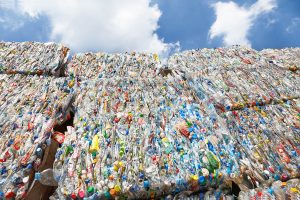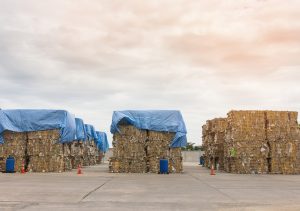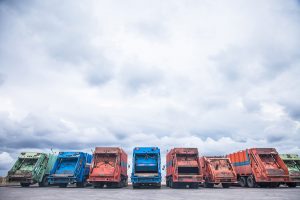 Steel and aluminum imports have been singled out by the White House, and though plenty of questions linger about the development, prices for recyclables could jump in the short term.
Steel and aluminum imports have been singled out by the White House, and though plenty of questions linger about the development, prices for recyclables could jump in the short term.

 Steel and aluminum imports have been singled out by the White House, and though plenty of questions linger about the development, prices for recyclables could jump in the short term.
Steel and aluminum imports have been singled out by the White House, and though plenty of questions linger about the development, prices for recyclables could jump in the short term.
 With China having recently shaken up export possibilities, industry leaders in the U.S. have amplified their calls for more domestic markets for recyclables. Two upcoming events aim to accelerate that process.
With China having recently shaken up export possibilities, industry leaders in the U.S. have amplified their calls for more domestic markets for recyclables. Two upcoming events aim to accelerate that process.
 Casella Waste Systems ended a good year on a bad note. China’s import restrictions dented recycling revenues for the Northeast company last fall.
Casella Waste Systems ended a good year on a bad note. China’s import restrictions dented recycling revenues for the Northeast company last fall.

Credit: 1933bkk/Shutterstock
About 85 percent of mixed paper and OCC exported out of California has been bound for China in recent years, and as the Asian behemoth closes its doors to some of those imports, the state’s recycling industry is feeling the hit.
Continue Reading

For North America’s largest garbage and recycling companies, 2017 overall was a good year in recycling. That being said, the fourth quarter was a bad one for the industry.
 Our monthly markets update shows OCC is still selling at record levels, and other fiber grades have seen notable upticks. Plastics is more of a mixed big, however.
Our monthly markets update shows OCC is still selling at record levels, and other fiber grades have seen notable upticks. Plastics is more of a mixed big, however.
 Over the past month, market prices for curbside paper grades have dropped significantly. Post-consumer plastic prices, meanwhile, have only seen slight declines.
Over the past month, market prices for curbside paper grades have dropped significantly. Post-consumer plastic prices, meanwhile, have only seen slight declines.
 Over the past month, the market value for certain fiber grades has stabilized after a period of significant decline.
Over the past month, the market value for certain fiber grades has stabilized after a period of significant decline.
 Over the past month, the market for grades of curbside paper has been fairly stable.
Over the past month, the market for grades of curbside paper has been fairly stable.
 As we enter 2018, the market for most grades of curbside recyclables remains unchanged, although aluminum prices have seen a recent uptick.
As we enter 2018, the market for most grades of curbside recyclables remains unchanged, although aluminum prices have seen a recent uptick.
